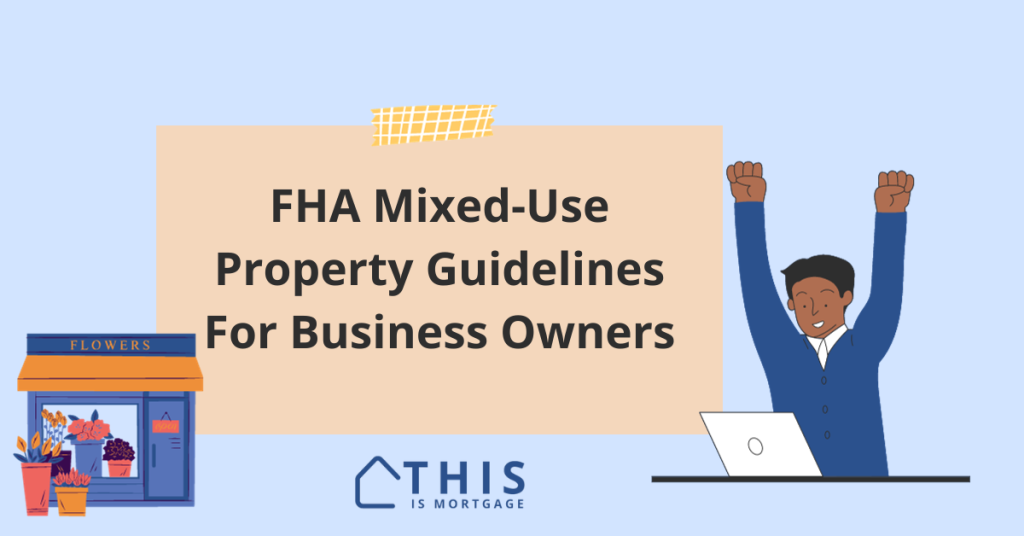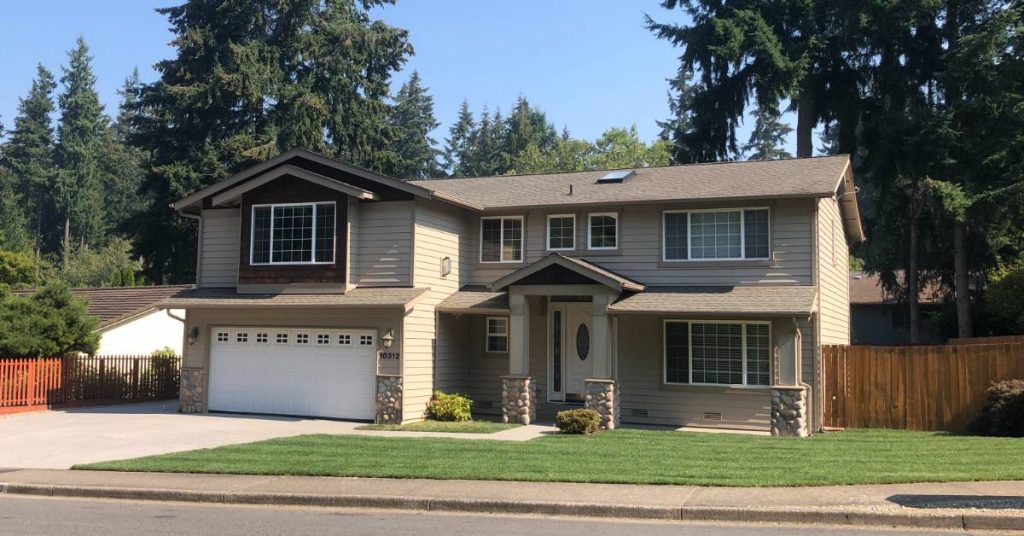If you’re a business owner, you could purchase a residential property with a storefront or other business-purpose square footage with 3.5% down.
Or, you could rent out commercial space to a tenant, offsetting primary housing expenses.
Surprisingly, FHA allows a portion of your primary residence to be commercial space. It even lets you finance the entire property at the same terms as any residential FHA loan.
However, not all properties will qualify. Here’s how to buy a mixed-use property with FHA.
See if you qualify for a mixed-use FHA loan.
FHA mixed-use property guidelines
1-4 unit property: The property must be 1-4 units. The commercial space counts as one unit.
Primary residence: You must live in one of the residential units.
51% residential: No more than 49% of the square footage can be used for commercial purposes, including storage areas. The appraiser must take accurate measurements and not assume a top/bottom structure is 50/50 (which won’t qualify for FHA)
Residential in nature: FHA guidelines say the structure must be primarily residential with commercial space “subordinate” to its residential use. Non-residential space must not hinder the marketability of the structure.
Zoning: The property must meet local zoning regulations or have been “grandfathered” in. The structure does not have to be zoned residential to use FHA.
Solid appraisal: The appraisal must support the purchase price. Neither the value of the business nor business fixtures may be included in the value.
Safe business: The appraiser must certify that the business will not affect the health and safety of residential occupants.
Self-sufficient: 3-4 unit properties must pass the self-sufficiency test, meaning 75% of potential rent from all units can cover the payments. Use this self-sufficiency calculator to learn more.
Reserves: You will need three months of the full payment in reserve after the down payment and closing costs for 3-4 unit properties.
In the real world, there’s much gray area when buying a mixed-use property. A lot comes down to the underwriter’s judgment call. Get an appraiser’s and underwriter’s opinion on a property prior to making an offer.
Submit your mixed-use FHA scenario.
Advantages of a mixed-use property
If you’re a small business owner, you may struggle to afford dedicated office space or a retail storefront. Leasing is expensive and you would need 30% down or more to buy a commercial building outright.
You may also be looking for a place to live.
FHA allows you to purchase a predominantly residential structure with square footage for business purposes. This could help you accomplish two goals at once, plus eliminate your commute.
For example, you own a small retail store. You find a building with a commercial storefront at street level and living space above. You acquire retail space and a home with one 3.5% down loan.
This feature is a little-known but powerful advantage of FHA financing.
The 51% rule
The property’s square footage must not be more than 49% commercial. In other words, the property has to be 51% residential.
If space usage is nearly equal, you may want to take measurements before making an offer. FHA requires the appraiser to provide measurements and calculations of square footage designated for commercial versus residential use. If it’s 50/50, you can’t use FHA financing.
Using commercial and residential rental income to qualify
If you don’t need the commercial space yourself, you can rent it out. Furthermore, you can use this rental income to qualify for the loan.
For example, the property is a 3-unit with one commercial unit and two residential units. You can use rental income from all units you do not occupy.
| Unit | Gross rents | Qualifying rental income (75%) |
| Commercial | $3,500 | $2,625 |
| Residential 1 | $0 (owner occupied) | $0 |
| Residential 2 | $1,500 | $1,125 |
| Total | $5,000 | $3,750 |
In this case you could add $3,750 per month to your regular income to help qualify for the loan.
Proving self-employment income
If you’re looking for a space for your business, you’re most likely self-employed. You can still be approved for FHA.
You will need to provide:
- Proof of 2 years of self-employment, but just one year in some cases
- 2 years of personal and business tax returns
- Tax returns should show enough income to qualify
- Steady or increasing income over the past two tax filing years
- The lender may require a year-to-date P&L
- Down payment and closing costs from non-business accounts
Check your eligibility for an FHA loan.
Rehabbing a mixed-use property
You can use FHA’s rehab financing, the 203k loan, on a mixed-use property.
For example, you find a home with retail space on the bottom floor and two units above. The residential units need work. The whole building needs general repairs such as electrical, plumbing, and roofing.
You can use rehab funds for:
- Residential unit repairs
- General repairs affecting the whole building
You may not use renovation funds to repair non-residential space. This could pose a problem, since FHA may not finance the structure if its commercial space is in bad condition. You would have to convince the seller to bring the commercial space up to an acceptable state prior to closing.
General FHA guidelines
To qualify for an FHA mixed-use loan, you must meet general requirements for the program.
- The property will be your primary residence
- Close in your personal name, not in the name of a business
- 580 minimum credit score (some lenders may require higher scores for mixed-use)
- Adequate funds for 3.5% down plus closing costs
- Employment income (W2 or self-employed). Rental income from the property is not enough to qualify
- Maximum 56.9% debt-to-income ratio or lower for some borrowers
Keep in mind that not all lenders offer mixed-use FHA loans, so you may need to shop around.
Is a mixed-use property right for you?
Small business owners who want to find housing and a space for their business might find FHA to be the perfect solution.
You can be connected with an FHA mixed-use lender and get started on the process.




